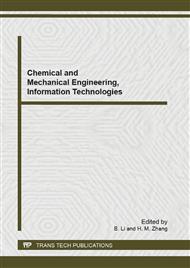p.1574
p.1581
p.1585
p.1589
p.1593
p.1597
p.1601
p.1605
p.1609
An Effective XML Identifying Feedback Documents Method Based on Two-Stage Ranking Model for Pseudo-Relevance Feedback
Abstract:
Although pseudo relevant feedback is an effective query expansion method, query drift away from the topic has been occurred frequently. Therefore, the first important problem is how to identify relevant documents in the top retrieved set and form the good feedback source. In this paper, an effective XML identifying feedback documents method is proposed, in which a two-stage ranking model is presented and the relevant XML documents are found. The experiment results show that the proposed method is reasonable and the quality of feedback source is ensured.
Info:
Periodical:
Pages:
1593-1596
Citation:
Online since:
September 2013
Authors:
Price:
Сopyright:
© 2013 Trans Tech Publications Ltd. All Rights Reserved
Share:
Citation:


